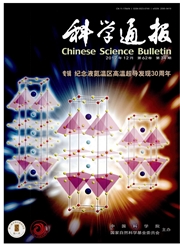

 中文摘要:
中文摘要:
储能用二次电池体系在风能、太阳能等可再生能源发电、智能电网建设等方面有着广阔的应用前景.本文对铅酸电池、钠硫电池、液流电池和锂离子电池的工作原理、特点、国内外研究现状、应用情况及发展趋势进行了综述,提出了制约储能电池发展瓶颈问题,储能电池需关注长寿命、低成本、高安全、大容量、高功率、快速充放电和环境适应性等性能指标,展望了储能二次电池体系未来的发展趋势.
 英文摘要:
英文摘要:
Secondary batteries that store and convert electrochemical energy show broad application prospects in renewable energy systems such as wind and solar energy, and in the construction of smart grids. This paper describes the basic working principles, properties, research and development, stationary applications and advances of lead-acid, sodium sulfur, redox flow, and lithium-ion batteries. Important problems currently limiting the development of these batteries are highlighted. Energy storage batteries need to focus on the areas of long life, low cost, high safety, high capacity, high power, fast charging/discharging and environmental adaptability. The future research topics are suggested.
 同期刊论文项目
同期刊论文项目
 同项目期刊论文
同项目期刊论文
 Spinel LiNi0.5Mn1.5O4 cathode for rechargeable lithiumion batteries: Nano vs micro, ordered phase (P
Spinel LiNi0.5Mn1.5O4 cathode for rechargeable lithiumion batteries: Nano vs micro, ordered phase (P Intergrown LiNi0.5Mn1.5O4 center dot LiNi1/3Co1/3Mn1/3O2 composite nanorods as high-energy density c
Intergrown LiNi0.5Mn1.5O4 center dot LiNi1/3Co1/3Mn1/3O2 composite nanorods as high-energy density c Composite of sulfur impregnated in porous hollow carbon spheres as the cathode of Li-S batteries wit
Composite of sulfur impregnated in porous hollow carbon spheres as the cathode of Li-S batteries wit Preparation of Li4Ti5O12 submicrospheres and their application as anode materials of rechargeable li
Preparation of Li4Ti5O12 submicrospheres and their application as anode materials of rechargeable li Spindle-Like LiMnPO4 Assembled by Nanorods with Different Crystallographic Orientations as the Catho
Spindle-Like LiMnPO4 Assembled by Nanorods with Different Crystallographic Orientations as the Catho 期刊信息
期刊信息
